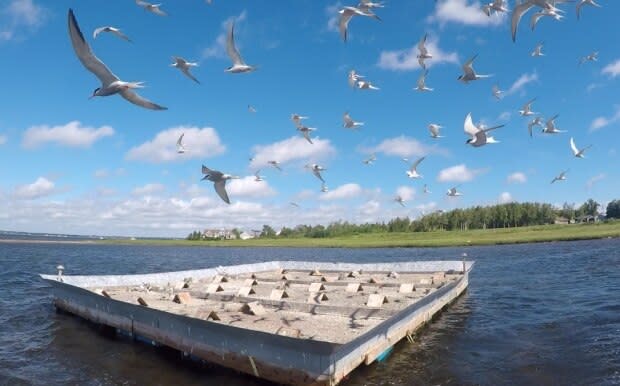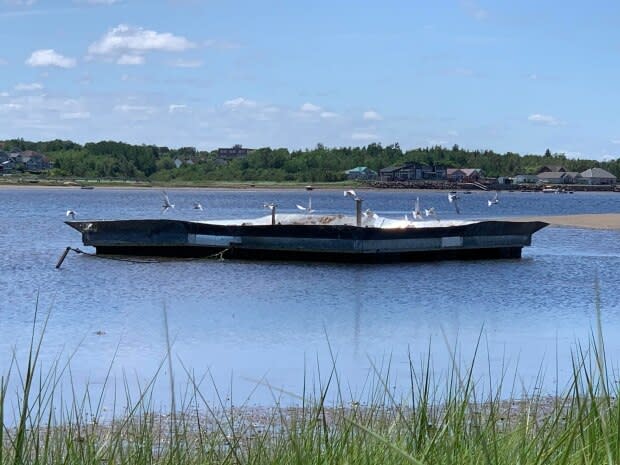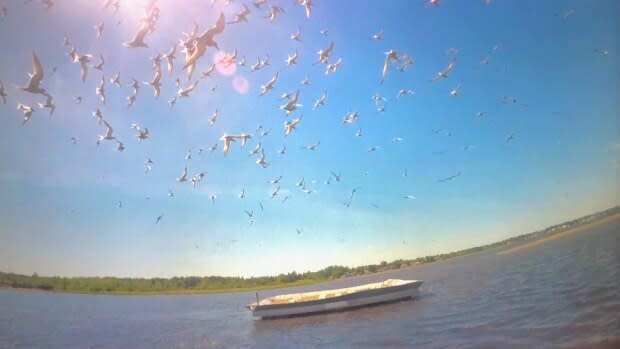Common terns flock to Shediac Bay in record numbers
When Jolyne Hebert goes to survey the number of common terns nesting on an artificial platform in Shediac Bay, she takes precautions.
Hebert says the migratory seabirds are territorial and very protective of their nests.
She wears a hat, raincoat and chest waders and tries to do her count as quickly as possible.
This year, the number is bigger than ever.
"So in 2019 we actually had a record number of eggs," said Hebert, a project co-ordinator with the Shediac Bay Watershed Association.
"We had counted about 396 eggs and this year, however, we counted 582 eggs on the platform that was divided into 195 nests, so we have 195 nesting pairs."

The nesting platform project started in 2014 after the terns lost their old nesting ground.
The Shediac Bay association started with a small platform and attracted one mating pair which produced three chicks.
Hebert said after that, the organization made the platform bigger and more solid.
But in 2017, a predator attacked.
"We're not sure if it was a land based predator that got on it," she said. "We believe it was when we had an extreme low tide and the platform might have touched the ground allowing a predator to get on it."
Hebert said it could have been a raccoon, a muskrat or even a fox.

After that, predator guards were installed around the platform.
Then last fall, Hurricane Dorian destroyed the platform.
Hebert said they were able to use salvageable pieces of dock donated by the Shediac Bay Yacht Club to rebuild.
"It is the exact same size as it was with the predator guards that fit just the way they used to and we put it in place just in time for the migratory birds … and we have an excellent turnout this year." she said.
The hurricane also destroyed another nesting area used by the terns. Hebert said a natural sandbar near Robichaud is now under water.
"So we're not sure where the other birds have gone. It might be one of the reasons why our platform was more crowded this year." she said.

Hebert said the common terns are an important part of the ecosystem in the Shediac Bay, which has plenty of small fish for them to eat.
The platform is in a shallow estuary with very little boat traffic.
Hebert said it is important to protect the terns, so they don't become endangered.
"Their natural habitats are disappearing and it's hard for them to find new nesting habitats, so for us to kind of intervene and create some artificial nesting habitats for them, I think it's a wonderful initiative to help support biodiversity." she said.
Hebert said the Shediac Bay Watershed Association will continue to monitor the terns and may consider a second platform if the population continues to grow.


